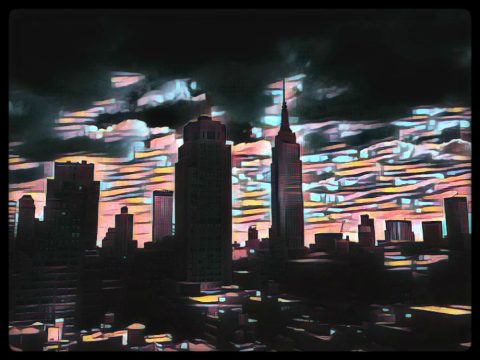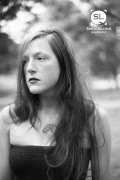“Geology” is of course a science and a discipline inasmuch as it is also the actual geographic description of the layering in soil and rock. I have two questions here: How apt is “geology” as a metaphor for what we do in fiction? Also, perhaps you could comment on the fantastic complex sedimenting you’ve done here—of a little bit of science, history, civilization, personal memory, and psychology (the sharpness of pain, mostly)—as an elaborate demonstration of geology itself?
For the first part of this question, I think there’s a lot of resonance in describing fiction as a geological process—all of us who are participating in story-making (that is, everyone) are building upon a depth of shared experiences, with layers of color and nuance that emerge. The nuance is where the beauty comes in as we contribute to an ever-growing rise of sediment.
In “Geology” I tried to develop a small mythology where hallmarks of humanity were present—including hints of history and civilization grounded in personal memories—while still leaving a great deal of mystery. The joy of flash fiction for me is in the silences and the unsaid, and I wanted to create a launchpad for readers to contribute to this mythology through their interpretations.
The vocabulary too felt specially selected, with words like “gneiss,” “basalt,” “slate,” “crumbled earth.” How important do you feel it is, in our reading of this piece, to understand the poetics of geology as well as the fact that these words aren’t interchangeable, i.e., that they have specific, nuanced meanings?
The chosen descriptors are meant to be grounded in shades of meaning. In “Geology” I envisioned the stones we give each other to be words. Because of this metaphor, it was essential that the words that make up this piece be specific—in giving words to one another, the smallest degree of phrasing can have a seismic impact on a person.
For me, this piece speaks very much also about our cultivation of a love for objects from childhood onwards, but not just any object—here, it is a collection of stones. The very words, “a pet collection of rocks,” can engender nostalgic memories for many of us. Would you like to elaborate on how you see our love of objects propelling the many dimensions of our relationships—emotional, physical, intellectual, profession?
I find myself frequently preoccupied by how we love things—how fickle our love of things can be. We use things to define us; however, we also tend to want to have mobility in that which we love. We want to be able to toss old objects away and get new things. With these collections of stones described in the story, we cannot get rid of what burdens us.
This piece relies on the tangible physical weight of words and suggests that what we carry emotionally also makes us heavy physically. At the time, I was feeling a great deal of personal frustration about my inability to let go of words I had let define me. “Geology” suggests that these words are indeed corporeal things that must be reckoned with.
“For the rest of our time on this earth, we carry other’s stones in our pockets, and they weigh us down and lift us up. If we are very lucky, the stones that lift us and weigh us down are equal, and we are perfectly balanced.” I love this sentence. The collection of stones here transform from the literal and the physical to the metaphorical, in a way mirroring our journey from childhood to maturity. Can you speak a little about these various metaphorical functions, particularly of “other’s stones” here?
The story denotes a shift in our preoccupation with these stones. As we mature, the stones we have received perhaps worry us less than those we have given away. There is a transformation from self to a concern for others’ own collections, and how we might have contributed to those.
This piece also moves from the more impersonal to the personal. It starts with “we” and then moves onto “I meet you in your bed and you pull your collection.” Let’s talk about this shift of pronoun and what it signifies for the story itself. What geologic shift do you feel is important to have happened here within this simple pronoun shift?
Going back to the mythology I spoke of earlier, I wanted this piece to have layers. I used the pronoun shift to drive home how personal this folklore was. To carry around these little conglomerates of weight means something to each individual represented in the larger collective of this piece. My hope was that narrowing the focus by shifting the pronouns drove home this deeply personal experience.



 The core workshop of SmokeLong Fitness is all in writing, so you can take part from anywhere at anytime. We are excited about creating a supportive, consistent and structured environment for flash writers to work on their craft in a community. We are thrilled and proud to say that our workshop participants have won, placed, or been listed in every major flash competition. Community works.
The core workshop of SmokeLong Fitness is all in writing, so you can take part from anywhere at anytime. We are excited about creating a supportive, consistent and structured environment for flash writers to work on their craft in a community. We are thrilled and proud to say that our workshop participants have won, placed, or been listed in every major flash competition. Community works.